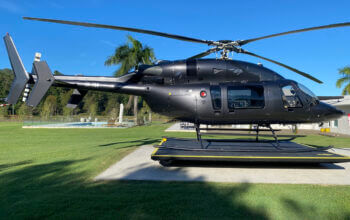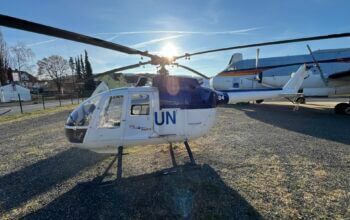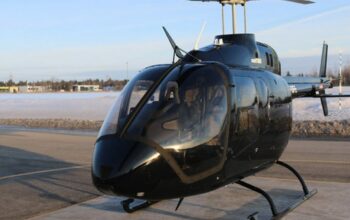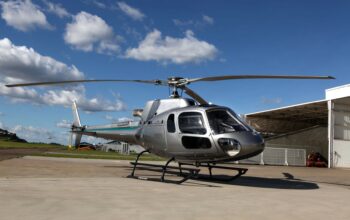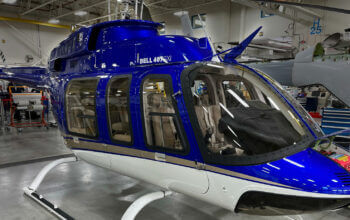Estimated reading time 4 minutes, 31 seconds.
Top Aces has received approval to acquire and import up to 29 F-16 aircraft from an undisclosed country, the company confirmed Thursday.
The Dorval, Que.-based air combat training firm said in a statement that the Block 10 aircraft would be upgraded with its open architecture mission system and offered as a platform to support United States Department of Defense training beginning in 2021.
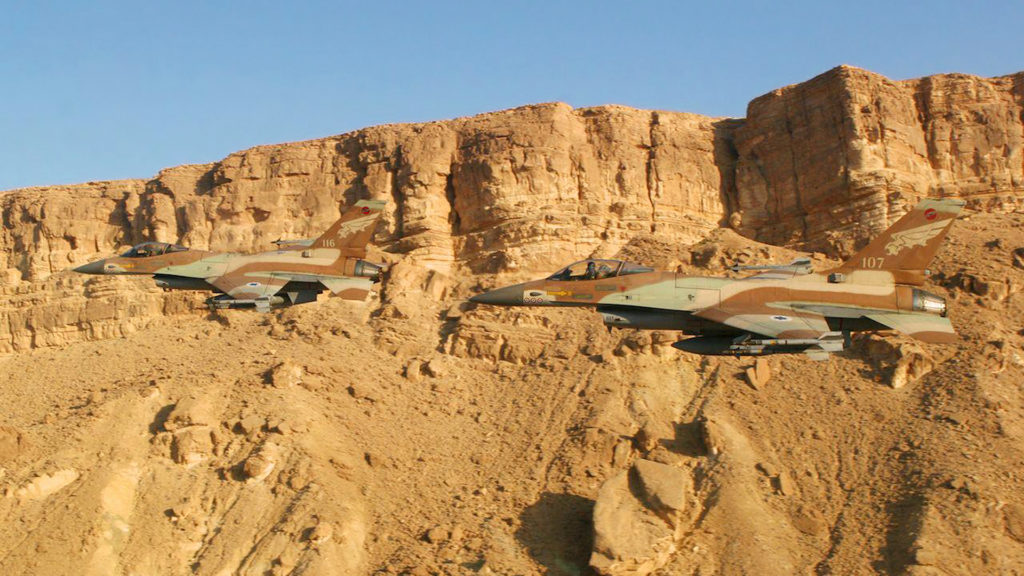
While Top Aces would not yet confirm the country of origin, Israeli media on Dec. 2 claimed the seller is the Israeli Defense Ministry. According to CTech, the F-16s are 1980s-era aircraft that were retired as of 2016, and the Defense Ministry’s export agency is overseeing the deal.
The company has been pursuing a fleet of Lockheed Martin F-16s for some time, to meet the training requirements of preparing next-generation pilots flying the F-35 Lightning II and F-22 Raptor. Top Aces confirmed in an interview in November 2019 that it was seeking to acquire 12 Block 15 A/B models from an undisclosed allied country.
“The F-16 really is our growth platform for the future, especially for advanced adversary training,” said Paul Bouchard, president and chief executive officer. “It is the most prolific adversary aircraft in the Western world. It is the adversary aircraft of choice just because of its performance characteristics. It is a fourth-generation aircraft, so from an aircraft architecture standpoint, it can be equipped and configured in so many different ways. . . . And it is also scalable given there were more than 4,000 F-16s built. It is still a production aircraft. It has a lot of existing support in terms of sustainment.”
If the deal with Israel is confirmed, the F-16 jets would be added to Top Aces’ current fleets of Dornier Alpha Jets and Douglas A-4 Skyhawks, and initially based at the F-16 Center of Excellence near the company’s U.S. headquarters in Mesa, Ariz.
In October 2019, the company received an indefinite-delivery/indefinite-quantity (IDIQ) contract that will allow it to compete with Air USA, Airborne Tactical Advantage Company, Blue Air Training, Coastal Defense, Draken International, and Tactical Air Support for adversary air services at 12 U.S. Air Force bases.
Under the US$6.4 billion Combat Air Force Contracted Air Support (CAF CAS) contract, the Air Force can solicit individual tenders from those seven companies for advanced adversary air (ADAIR) capabilities as required, at 12 USAF bases. The contract runs until October 2024 and is estimated to involve between 40,000 to 50,000 flying hours.
“As a named winner in the [CAF CAS] contract, Top Aces is uniquely positioned to offer the F-16 as the most capable and flexible ADAIR platform supporting the U.S. Department of Defense,” a spokesperson said on Thursday.
Top Aces has been a pioneer in contracted aggressor or “red” air training for militaries, simulating hostile threats for fighter pilots, naval crews, and land forces for the Canadian Armed Forces since the mid-2000s. In October 2017, the company won a competition to retain the Canadian Contracted Airborne Training Services (CATS) program under a 10-year deal worth about US$480 million, which includes options to extend the service to 2031 and the value to as much as US$1.4 billion.
The Canadian program is delivered with the Alpha Jet and Bombardier Learjet 35A aircraft, but Top Aces has proposed adding the F-16 when the Royal Canadian Air Force acquires its next-generation fighter.
The high standards of the CATS program have opened the doors to international opportunities. The USAF contract would not have been possible without the “industry-leading” certification and airworthiness standards demanded by the RCAF and Transport Canada, Bouchard acknowledged in 2019. Top Aces secured a similar training support contract with the German Armed Forces in 2014 and, more recently, a two-year trial with the Australian Defence Force.
